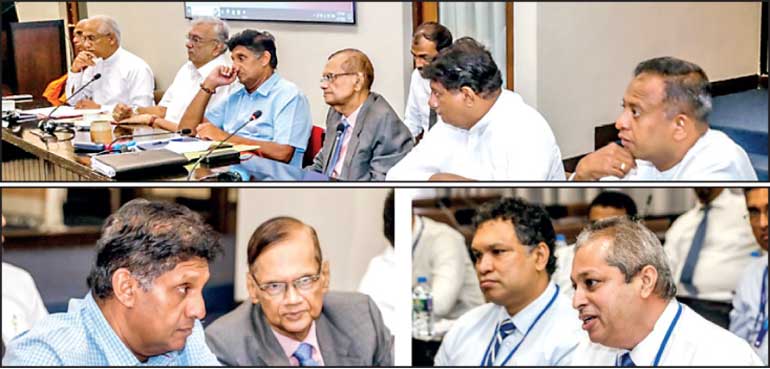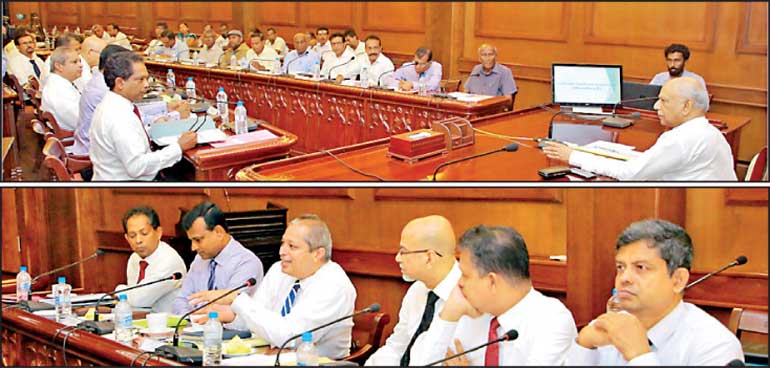Friday Feb 20, 2026
Friday Feb 20, 2026
Tuesday, 3 October 2023 00:03 - - {{hitsCtrl.values.hits}}


The Employers’ Federation of Ceylon (EFC) yesterday stressed the need for political will to realise much-needed competitive and relevant labour law reforms.
This was conveyed by EFC during a series of meetings with political representatives including the Prime Minister and the Executive Council of the Parties in the Opposition to discuss labour law reforms to be introduced through the proposed Employment Act.
The meeting with the Prime Minister Dinesh Gunawardena, which was held at the Temple Trees was attended by the Commissioner General of Labour, a representative of the Bar Association, officials of state enterprises and trade unions. The meeting with the Executive Council Members of the Opposition Parties was held in the Parliamentary complex and was chaired by the Leader of the Opposition, Sajith Premadasa. MPs Lakshman Kiriella, Prof. G.L. Peiris, Eran Wickramaratne, Nalaka Godahewa and Chandima Weerakkody represented the Committee at this meeting.
The EFC led the private sector which was represented by several business chambers at these meetings. On behalf of the private sector, EFC Director General Vajira Ellepola highlighted the importance of proceeding with labour law reforms which are critical for investment promotion. During the discussions, EFC’s DG reiterated that the private sector had made submissions to successive governments calling for labour law reforms. Despite the fact that such regimes have also declared their intention to reform the existing law, they lacked the political will and conviction to realise those reforms to benefit all stakeholders, he averred.
“Our current labour law is essentially the same as what existed a few decades ago, regardless of substantial socioeconomic changes that have taken place in a highly competitive global environment,” EFC’s DG Ellepola remarked. He further noted that if Sri Lanka is to remain relevant in a highly competitive global market, labour law reforms are imperative for business growth which in turn will create resilient and sustainable organisations.
The objectives of labour law reforms were broadly summed by the EFC during these discussions to include the promotion of investment, creation of new and better job opportunities, strengthening social security and creating an enabling environment for employees and employers to realise the full potential of information and technology-driven modern world of work. To achieve these objectives, several key changes were mooted by the EFC.
While transforming the labour law to embrace the changes in the modern socio-economic fabric, the EFC also called to recognise the influence of the digital transformation of the world of work and urged for a dynamic private sector-driven economic growth for the national economy to remain competitive and sustainable. Taking stock of the globalised market economy and flexibility to grow and adjust is also imperative, EFC pointed out.
“In the above backdrop it is important to address labour law reforms on a priority basis to permit greater flexibility of enterprises to attract investment which in turn will generate employment” observed Ellepola who tabled the proposals under three main pillars of laws relating to the termination of employment, conditions of employment and laws relating to industrial/labour relations. He also drove home the message that in the Sri Lankan context, if economic reforms are to yield optimum results, they should be complemented by administrative, legal and educational reforms.